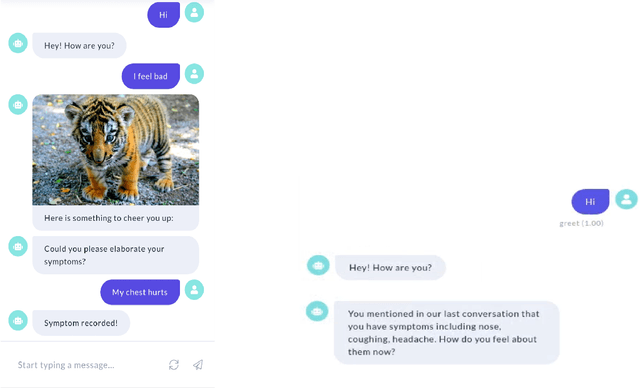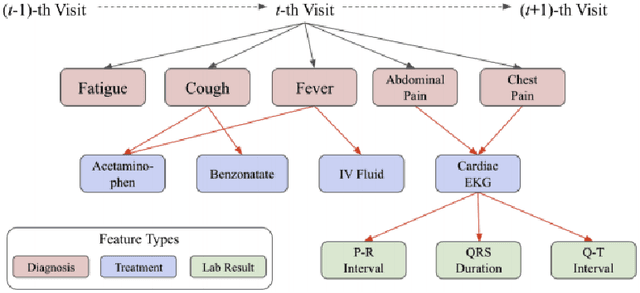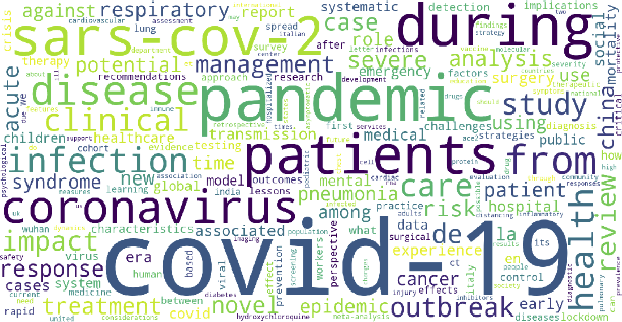Weiqi Lu
Rice University, Houston, United States
An Empirical Study of Bugs in Data Visualization Libraries
Jun 18, 2025Abstract:Data visualization (DataViz) libraries play a crucial role in presentation, data analysis, and application development, underscoring the importance of their accuracy in transforming data into visual representations. Incorrect visualizations can adversely impact user experience, distort information conveyance, and influence user perception and decision-making processes. Visual bugs in these libraries can be particularly insidious as they may not cause obvious errors like crashes, but instead mislead users of the underlying data graphically, resulting in wrong decision making. Consequently, a good understanding of the unique characteristics of bugs in DataViz libraries is essential for researchers and developers to detect and fix bugs in DataViz libraries. This study presents the first comprehensive analysis of bugs in DataViz libraries, examining 564 bugs collected from five widely-used libraries. Our study systematically analyzes their symptoms and root causes, and provides a detailed taxonomy. We found that incorrect/inaccurate plots are pervasive in DataViz libraries and incorrect graphic computation is the major root cause, which necessitates further automated testing methods for DataViz libraries. Moreover, we identified eight key steps to trigger such bugs and two test oracles specific to DataViz libraries, which may inspire future research in designing effective automated testing techniques. Furthermore, with the recent advancements in Vision Language Models (VLMs), we explored the feasibility of applying these models to detect incorrect/inaccurate plots. The results show that the effectiveness of VLMs in bug detection varies from 29% to 57%, depending on the prompts, and adding more information in prompts does not necessarily increase the effectiveness. More findings can be found in our manuscript.
Is ChatGPT the Ultimate Programming Assistant -- How far is it?
Apr 24, 2023



Abstract:The recent progress in generative AI techniques has significantly influenced software engineering, as AI-driven methods tackle common developer challenges such as code synthesis from descriptions, program repair, and natural language summaries for existing programs. Large-scale language models (LLMs), like OpenAI's Codex, are increasingly adopted in AI-driven software engineering. ChatGPT, another LLM, has gained considerable attention for its potential as a bot for discussing source code, suggesting changes, providing descriptions, and generating code. To evaluate the practicality of LLMs as programming assistant bots, it is essential to examine their performance on unseen problems and various tasks. In our paper, we conduct an empirical analysis of ChatGPT's potential as a fully automated programming assistant, emphasizing code generation, program repair, and code summarization. Our study assesses ChatGPT's performance on common programming problems and compares it to state-of-the-art approaches using two benchmarks. Our research indicates that ChatGPT effectively handles typical programming challenges. However, we also discover the limitations in its attention span: comprehensive descriptions can restrict ChatGPT's focus and impede its ability to utilize its extensive knowledge for problem-solving. Surprisingly, we find that ChatGPT's summary explanations of incorrect code provide valuable insights into the developer's original intentions. This insight can be served as a foundation for future work addressing the oracle problem. Our study offers valuable perspectives on the development of LLMs for programming assistance, specifically by highlighting the significance of prompt engineering and enhancing our comprehension of ChatGPT's practical applications in software engineering.
COVID-19 Smart Chatbot Prototype for Patient Monitoring
Mar 11, 2021



Abstract:Many COVID-19 patients developed prolonged symptoms after the infection, including fatigue, delirium, and headache. The long-term health impact of these conditions is still not clear. It is necessary to develop a way to follow up with these patients for monitoring their health status to support timely intervention and treatment. In the lack of sufficient human resources to follow up with patients, we propose a novel smart chatbot solution backed with machine learning to collect information (i.e., generating digital diary) in a personalized manner. In this article, we describe the design framework and components of our prototype.
 Add to Chrome
Add to Chrome Add to Firefox
Add to Firefox Add to Edge
Add to Edge